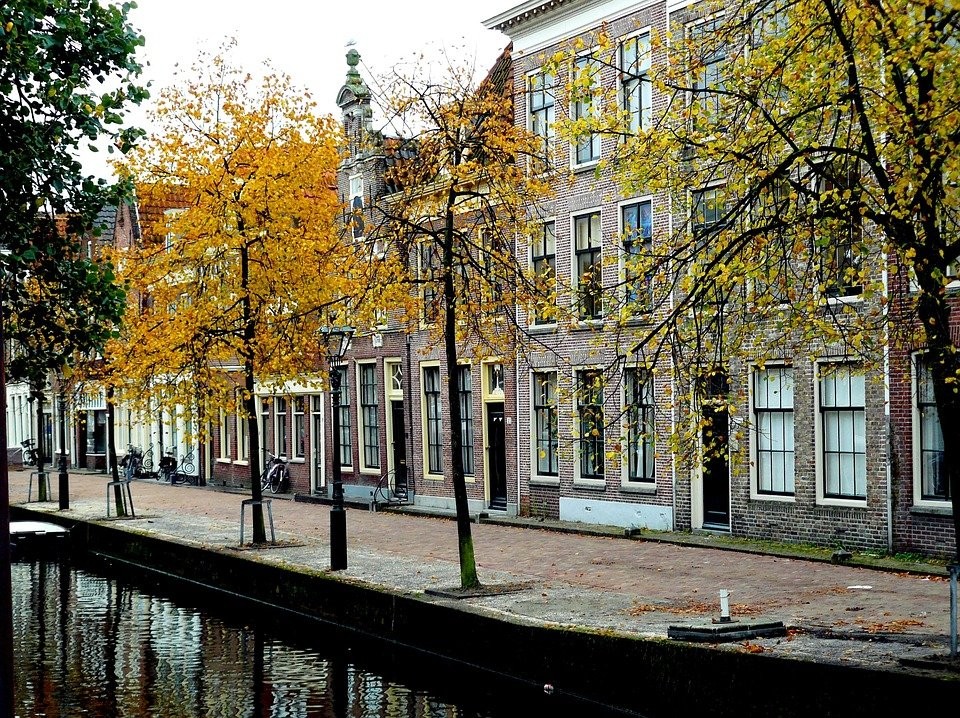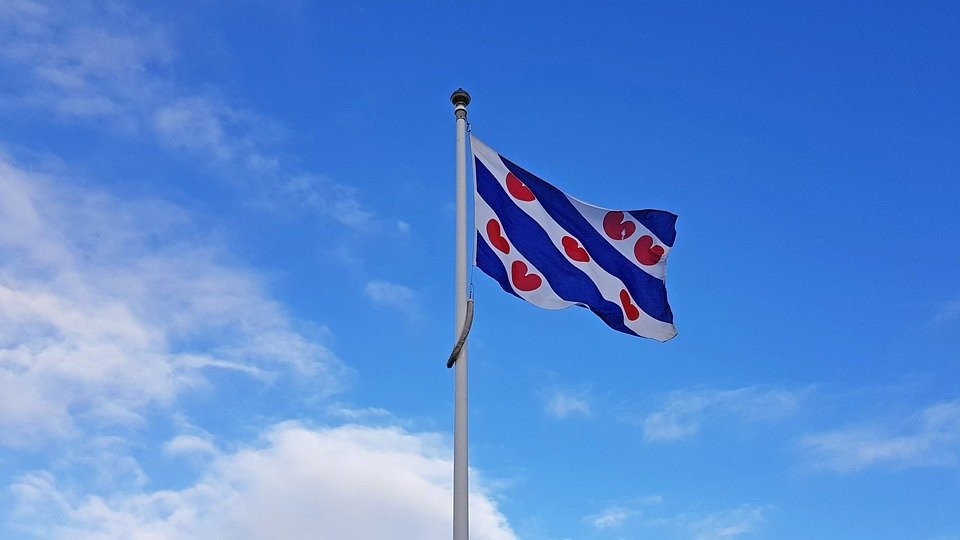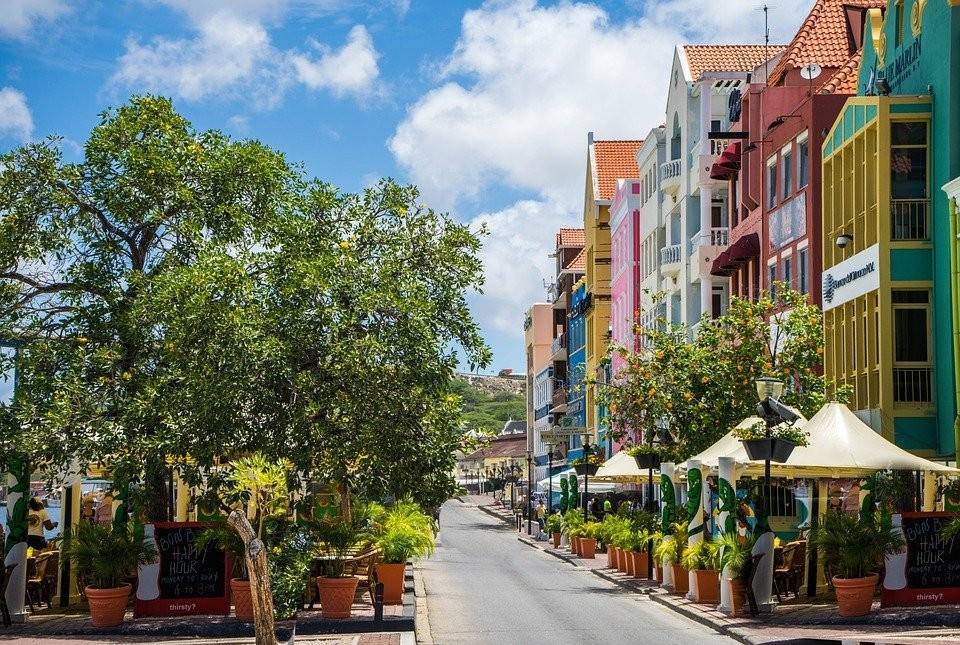What Language Is Spoken In Amsterdam? Dutch is the official language, yet you’ll hear many others. WHAT.EDU.VN offers you all the insights you need. Discover the linguistic landscape and explore the Netherlands’ multicultural environment, which includes language learning, global communication, and cultural diversity.
1. Exploring the Dominant Language in Amsterdam
Amsterdam, a vibrant and multicultural city, has a rich linguistic landscape. While many languages are spoken, understanding the primary language is crucial for anyone planning to visit or live there. Let’s explore the dominant language and other languages spoken in Amsterdam.
The official language of the Netherlands is Dutch. This applies to Amsterdam as well. Dutch is used in government, education, media, and everyday communication. While many residents speak other languages fluently, Dutch remains the primary language of the city.
2. Can You Get By With English in Amsterdam?
One of the most frequently asked questions by tourists and expats is whether English is widely spoken in Amsterdam. The answer is a resounding yes. The Dutch are well-known for their proficiency in English, with a significant percentage of the population speaking it fluently.
- High English Proficiency: It’s estimated that over 90% of people in Amsterdam can speak English. This high level of proficiency makes it easy for tourists and visitors to communicate in most situations.
- English in Business: Many international businesses in Amsterdam operate in English. This makes it a convenient location for professionals from around the world.
- English in Education: Many universities and higher education institutions offer programs in English. This attracts international students and researchers.
3. Other Languages Spoken in Amsterdam
Amsterdam’s multicultural environment means that you’ll hear a variety of languages spoken on its streets. This diversity is due to the city’s history as a trading hub and its welcoming attitude towards immigrants and international visitors.
- Turkish: A significant portion of Amsterdam’s population has Turkish roots. You’ll often hear Turkish spoken in certain neighborhoods and businesses.
- Arabic: With an increasing number of people from Arabic-speaking countries residing in Amsterdam, Arabic is becoming more common.
- Indonesian: Given the historical ties between the Netherlands and Indonesia, Indonesian is spoken by some residents.
- German and French: Besides English, many Dutch people also speak German and French, reflecting the Netherlands’ close ties to its European neighbors.
4. The Importance of Dutch Language
While English is widely spoken and understood, learning Dutch can greatly enhance your experience in Amsterdam. It shows respect for the local culture and can open up opportunities for deeper connections with the community.
- Cultural Integration: Speaking Dutch allows you to better understand and appreciate Dutch culture, traditions, and social norms.
- Employment Opportunities: Although many companies operate in English, knowing Dutch can give you a competitive edge in the job market.
- Everyday Life: Simple tasks like grocery shopping, reading local news, and understanding public announcements become much easier with knowledge of Dutch.
5. Dutch as the Sole Official Language
The Netherlands has one official language. The Dutch language is essential for all official communication. This includes government documents, legal proceedings, and public services.
5.1. Regional Languages in the Netherlands
Although Dutch is the primary language, several regional languages are spoken in the Netherlands. These languages are recognized and protected to varying degrees.
- West Frisian: Spoken in the province of Friesland, West Frisian is recognized as a regional language. It has around 450,000 speakers.
- Dutch Low Saxon: Various dialects of Dutch Low Saxon are spoken in the eastern provinces. About 1.8 million people speak these dialects.
- Limburgish: Spoken in the southern province of Limburg, Limburgish has around 825,000 speakers.
5.2. West Frisian: A Closer Look
West Frisian is particularly interesting. It is closely related to Middle English. The language has a unique cultural significance in Friesland.
5.3. Dutch Low Saxon
Dutch Low Saxon is a collection of dialects. These are spoken in the eastern parts of the Netherlands. While its use has declined, it remains an important part of the regional heritage.
5.4. Limburgish Across Borders
Limburgish is not only spoken in the Netherlands. It is also spoken in neighboring parts of Germany and Belgium. This highlights the interconnectedness of the region’s linguistic landscape.
6. Languages in the Kingdom of the Netherlands
The Kingdom of the Netherlands includes overseas territories. These islands in the Caribbean have their own languages and cultural identities.
6.1. Papiamento in Bonaire
Papiamento is an official language on the island of Bonaire. It is also the native language of Aruba and Curaçao. This creole language reflects the diverse heritage of the islands.
6.2. English on the BES Islands
English has dual official language status on the BES Islands. These include Bonaire, Sint Eustatius, and Saba. This reflects the islands’ historical and cultural connections to English-speaking regions.
6.3. Dutch Worldwide
Dutch is spoken by around 24 million people worldwide. Additionally, about 5 million people speak Dutch as a second language. This is primarily in the Netherlands and Belgium. You can find dialects of Dutch in places like North-Eastern France and Suriname.
6.4. Afrikaans: A Daughter Language
Afrikaans is an official language of South Africa. It is derived from Dutch. To some extent, the two languages are mutually intelligible.
7. Useful Dutch Phrases for Visitors
While English proficiency is high, using a few Dutch phrases can greatly enhance your experience in Amsterdam. Locals appreciate the effort, and it can lead to more meaningful interactions.
- Goedemorgen: Good morning
- Dank je wel: Thank you
- Alsjeblieft: Please/You’re welcome
- Hallo: Hello
- Tot ziens: Goodbye
8. Understanding Dutch Language Learning
For those interested in delving deeper into the Dutch language, various resources and courses are available. Whether you’re aiming for basic conversational skills or advanced fluency, there are options to suit your needs.
8.1. Online Resources for Learning Dutch
Many online platforms offer Dutch language courses. These platforms often provide interactive lessons. They also offer vocabulary exercises and grammar explanations. Popular options include Duolingo, Babbel, and Rosetta Stone.
8.2. Language Schools in Amsterdam
Amsterdam boasts several language schools that offer structured Dutch courses. These schools provide immersive learning environments. They also provide opportunities for practicing with native speakers. Some well-regarded language schools include the Babel Talencursussen and the Koentact Dutch Training.
8.3. University Courses
Some universities in Amsterdam offer Dutch language courses for international students and visitors. These courses often focus on academic and professional language skills. They provide a comprehensive understanding of the Dutch language.
9. The Role of Language in Amsterdam’s Culture
Language plays a crucial role in shaping Amsterdam’s cultural identity. It serves as a bridge between different communities. It also preserves the city’s historical heritage.
9.1. Language and Cultural Events
Amsterdam hosts numerous cultural events that celebrate linguistic diversity. These events often feature performances, workshops, and exhibitions. They highlight the importance of language in fostering understanding and appreciation.
9.2. Bilingualism and Multilingualism
Bilingualism and multilingualism are common in Amsterdam. Many residents speak multiple languages fluently. This reflects the city’s openness to different cultures. It also reflects its global outlook.
9.3. Language as a Tool for Integration
Language is an essential tool for integrating into Dutch society. Learning Dutch helps newcomers connect with the local community. It also helps them participate fully in civic life.
10. Frequently Asked Questions About Languages in Amsterdam
To provide a comprehensive understanding of the linguistic landscape in Amsterdam, here are some frequently asked questions:
| Question | Answer |
|---|---|
| Is Dutch the only official language in Amsterdam? | Yes, Dutch is the sole official language in Amsterdam and the Netherlands. |
| Can I live in Amsterdam without speaking Dutch? | Yes, it is possible to live in Amsterdam without speaking Dutch, especially if you work for an international company. However, learning Dutch is highly recommended for better integration and daily life. |
| Do I need to learn Dutch for studying in Amsterdam? | Many universities offer programs in English, but learning Dutch can enhance your overall experience and integration into the academic community. |
| Are there language exchange programs in Amsterdam? | Yes, various language exchange programs and meetups are available in Amsterdam, providing opportunities to practice Dutch with native speakers and learn other languages. |
| How can I improve my Dutch language skills quickly? | Immersion, consistent practice, taking a structured course, and engaging in conversations with native speakers are effective ways to improve your Dutch language skills quickly. |
| Is Dutch difficult to learn for English speakers? | Dutch can be challenging but also shares similarities with English, making it relatively easier compared to some other languages. Focusing on pronunciation and grammar is key. |
| Are there any free Dutch language resources available? | Yes, there are free online resources like Duolingo, as well as libraries and community centers that offer free language learning sessions. |
| Can I find Dutch-speaking communities outside Europe? | Yes, Dutch-speaking communities can be found in Suriname and some parts of the Caribbean, reflecting the historical ties of the Netherlands. |
| Is there a difference between Flemish and Dutch? | Flemish is a dialect of Dutch spoken in Flanders, the northern part of Belgium. While there are some differences in pronunciation and vocabulary, they are mutually intelligible. |
| How does language influence Amsterdam’s identity? | Language reflects Amsterdam’s multiculturalism and history, shaping its unique cultural identity and fostering a sense of community among diverse groups. |



11. Mastering Amsterdam’s Linguistic Landscape
Amsterdam presents a unique and welcoming linguistic environment. With Dutch as the official language and English widely spoken, navigating the city is relatively easy for international visitors. However, taking the time to learn some Dutch phrases can greatly enhance your experience and show respect for the local culture.
11.1. Embracing the Multilingual Experience
Amsterdam’s multilingual environment is a testament to its rich cultural diversity. By embracing this diversity and making an effort to learn the local language, you can fully immerse yourself in the city’s vibrant atmosphere.
11.2. Resources for Continued Learning
Numerous resources are available to help you continue your Dutch language learning journey. Whether you prefer online courses, language schools, or informal language exchange programs, there are options to suit your learning style and goals.
11.3. The Value of Language Exchange
Participating in language exchange programs is a valuable way to improve your Dutch language skills while connecting with native speakers. These exchanges provide opportunities for mutual learning and cultural understanding.
Do you have questions about Amsterdam or any other topic? At WHAT.EDU.VN, we provide free answers to all your questions. Our platform is designed to help you find the information you need quickly and easily. Whether you’re a student, a professional, or simply curious, WHAT.EDU.VN is here to assist you. We understand the challenges of finding reliable information, which is why we offer a user-friendly platform where you can ask any question and receive accurate, helpful answers. Contact us at 888 Question City Plaza, Seattle, WA 98101, United States, or via Whatsapp at +1 (206) 555-7890. Visit our website at what.edu.vn for more information. Ask your questions today and get the answers you deserve!